
Catch up on the top radiology content of the past week.
Senior Editor, Diagnostic Imaging

Catch up on the top radiology content of the past week.
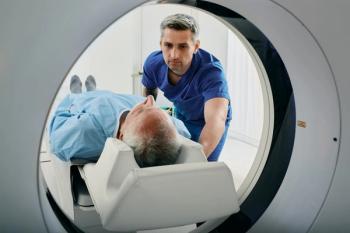
Comparing annual emergency department encounters that involved a head CT in 2007 and 2022, researchers noted a 51 percent increase and also found significant disparities in access to head CTs for Black patients, those on Medicaid and patients in rural hospital settings.
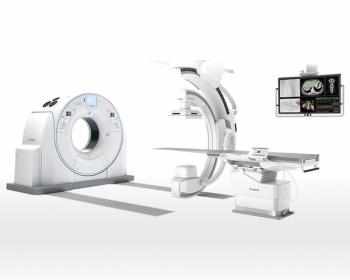
Geared toward interventional radiologists, the Alphenix 4D CT with Aquilion One/Insight Edition combines angiography capabilities with advanced features in computed tomography.
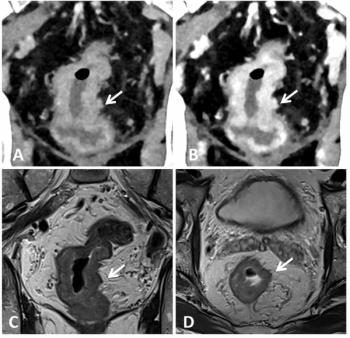
For T3-T4 rectal cancer staging, a new study showed that optimal photon-counting CT offered an AUC range between 80 and 86 percent in comparison to an AUC range between 78 and 88 percent for rectal MRI.
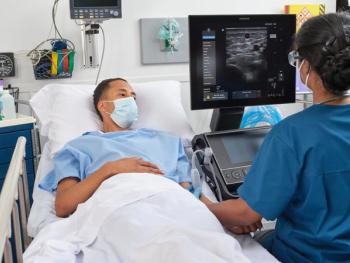
The recently launched PIV Assist reportedly offers a variety of features including real-time calculation of the catheter-to-vein ratio and pre-scan differentiation of veins and arteries to facilitate vascular access planning.
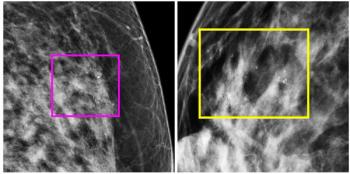
The use of radiomics for mammography may help predict the development of occult invasive cancer in women with ductal carcinoma in situ (DCIS), according to a new study.

In a recent interview, Christoph Lee, M.D., discussed key findings from the ASSURE study, which evaluated the use of AI in detection and triage in a multicenter trial involving over 579,000 women who had digital breast tomosynthesis (DBT) exams.

The Synapse One platform reportedly offers a variety of enterprise imaging capabilities and may facilitate reduced third-party integration complexities and costs.
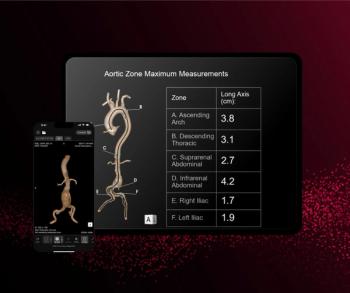
Along with the capability of automated measurements and 3D reconstructions of the aorta, Rapid Aortic may facilitate earlier detection of aortic aneurysms and dissections on computed tomography exams.
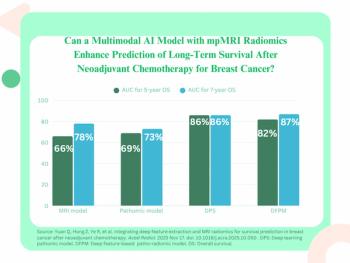
Incorporating mpMRI radiomics, clinical characteristics, deep learning and pathomic features, a multimodal model offered 82 percent and 87 percent AUCs for predicting overall survival outcomes at five years and seven years, respectively, for women treated with neoadjuvant chemotherapy for breast cancer.
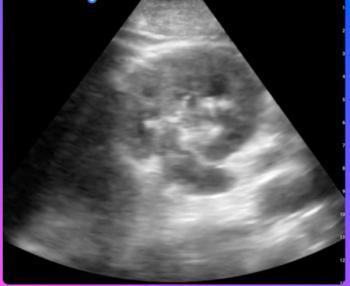
The newly launched Compass AI software platform reportedly facilitates a 94 percent compliance rate for documentation of point-of-care ultrasound (POCUS) exams.

The gallium-68 radiolabeled PET imaging agent ITM-94 is currently being evaluated in a phase 1/2 trial for its utility in detecting ccRCC and differentiating indeterminate renal masses.
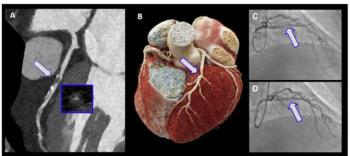
Photon-counting computed tomography demonstrated over 20 percent accuracy at the patient level and nearly 14 percent higher accuracy level at the vessel level in comparison to energy-integrating detector CT for detecting > 70 percent stenosis, according to a newly published study.

Catch up on the top radiology content of the past week.

In a recent interview, Ibrahim Danad, M.D., Ph.D., discussed new research findings from the multicenter CONFIRM2 trial and use of the AI-CT software to obtain automated quantification of plaque burden based off coronary computed tomography angiography (CCTA) scans.
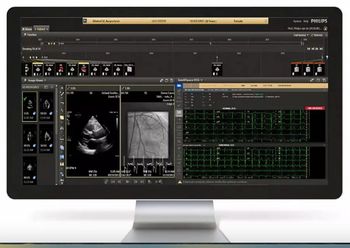
The latest update of the Cardiovascular Workspace software reportedly emphasizes secure cloud deployment and accelerated adoption of AI tools for increased efficiency.
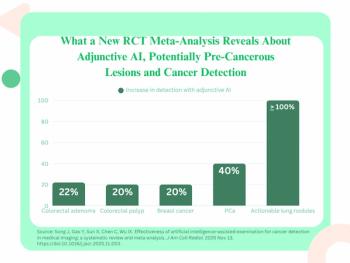
Use of AI provided a pooled 22 percent increase in adenoma detection but no significant impact for advanced adenomas, according to an analysis of 39 randomized controlled trials examining AI’s impact in detecting colorectal cancer.
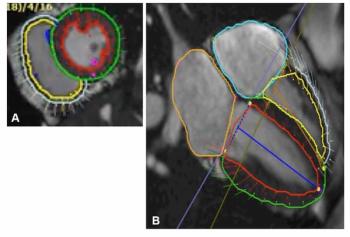
Multivariable analysis from a new study revealed that those with low right ventricular global longitudinal strain were 16 percent more likely to suffer heart failure.
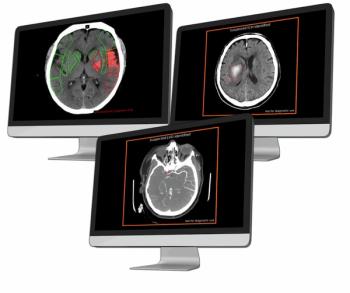
The launch of the AVI imaging platform reportedly facilitates direct integration into PACS and RS systems, and automated access to adjunctive CT-based AI applications for a variety of conditions including pulmonary embolism, intracranial hemorrhage and large vessel occlusion
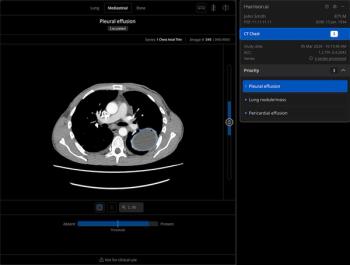
Offering a “safety net” in emergency and inpatient settings, the Chest CT software reportedly provides enhanced triage capabilities and adjunctive detection of 167 radiological features.

In a recent interview, Timothy Fairbairn, Ph.D., and Fatima Rodiguez, M.D., discussed new research findings, recently presented at the American Heart Association (AHA) conference, showing the value of AI-powered quantification of plaque burden from CCTA exams for predicting adverse cardiovascular outcomes.
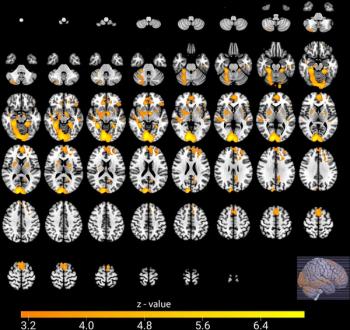
Fan reaction to significant defeats of a soccer team was linked to lower activation of the dorsal anterior cingulate cortex and deactivation of the salience network, which may lead to changes with emotional regulation and cognitive control, according to new brain MRI research.

In a prospective study comparing PSMA PET/CT and mpMRI for biopsy- and imaging-naïve men with suspected prostate cancer (PCa), PSMA PET/CT led to altered management in 34 percent of confirmed cases of PCa.

Catch up on the top radiology content of the past week.

In a recent interview, Hari Kishan Gonuguntla, M.D., discussed AI-powered evaluation of chest X-rays with the Lung Nodule Malignancy Score software and key findings from multinational prospective research presented at the recent ESMO Congress 2025 meeting.
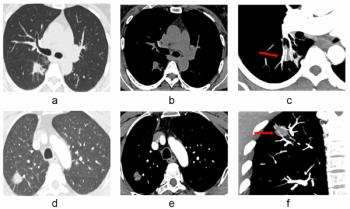
New research shows that incorporating the CT vascular sign into assessments of pulmonary nodules led to significant increases in specificity and accuracy as well as reduced false positive rates for differentiating between malignant and benign solid pulmonary nodules.

In the second part of a recent interview on new molecular imaging guidelines for renal masses, Steven Rowe, M.D., discussed the off-label utility of the mitochondrial imaging agent 99mTc-sestamibi and the potential role of AI in advanced imaging for indeterminate renal masses.
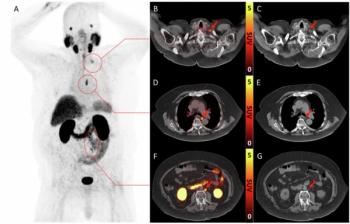
In a new review from the European Society of Urogenital Radiology (ESUR), researchers discuss the merits and limitations of PSMA PET/CT and whole-body MRI (WB-MRI) for patients with advanced prostate cancer.
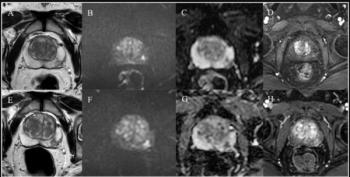
Researchers found no statistically significant differences between bpMRI and mpMRI evaluations of patients with PI-RADS 3 presentations, according to a new multi-reader study.
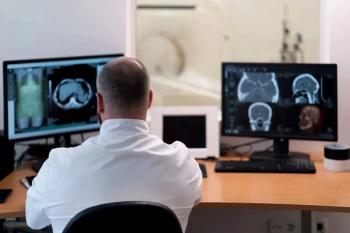
The Harrison.ai Open Platform reportedly emphasizes open architecture, customer ROI and elimination of costly AI platform fees.